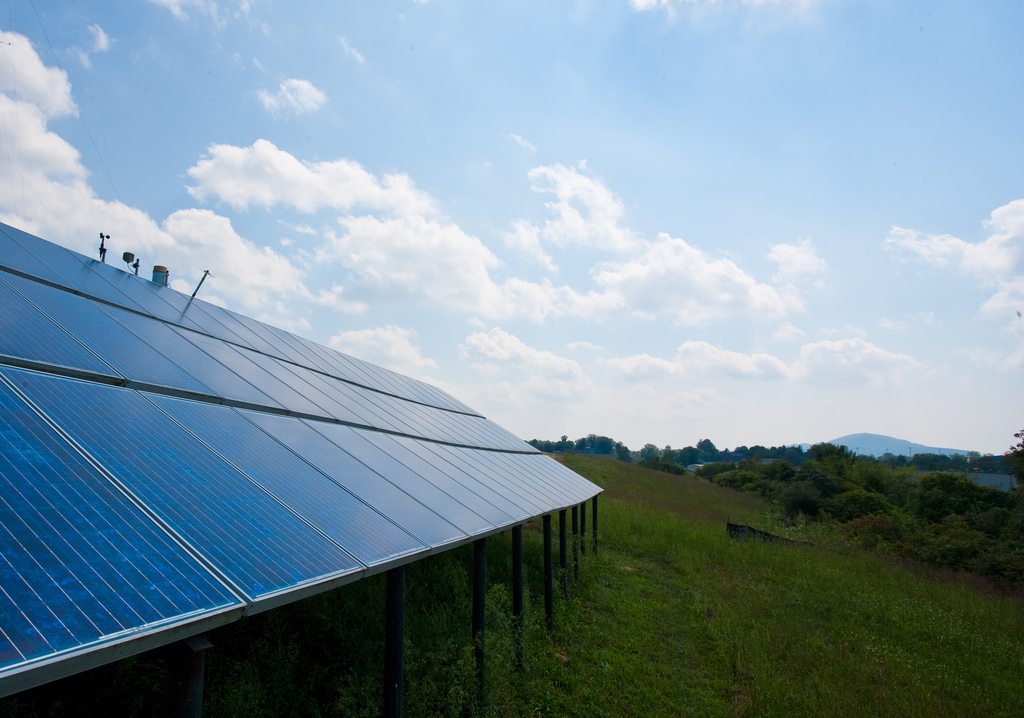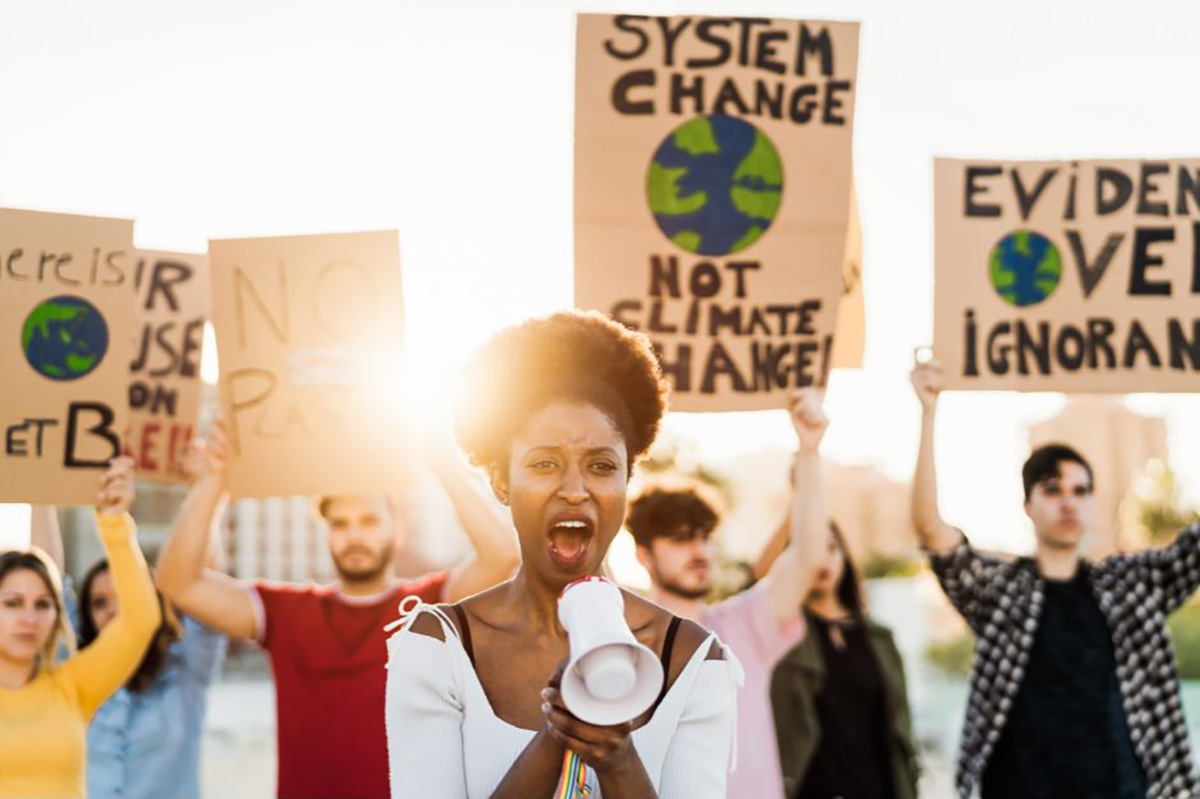“Solar energy could end power crisis in Ghana”
August 30th, 2015 Ghana’s abundant sunshine could solve the country’s power crisis, writes Fariya Abubakari, 25, a Correspondent from Bawku, Ghana, who argues for government support of solar policies and industry.
Ghana’s abundant sunshine could solve the country’s power crisis, writes Fariya Abubakari, 25, a Correspondent from Bawku, Ghana, who argues for government support of solar policies and industry.
Fossil fuels are still being used as the major energy source in Ghana, with just one per cent of power coming from solar and wind energy.
Meanwhile the limited amount of fossil fuels means energy is becoming more and more expensive in the country, while their consumption is having an impact on our environment with greenhouse gases causing global warming.
Ghana is located in the tropics and receives high levels of almost direct solar radiation daily all year round. This constitutes a large untapped energy potential, ideal for solar-thermal, domestic and small industrial applications. Estimated solar radiation levels in Ghana are enough to provide an economical and environmentally friendly alternative to conventional fossil fuel technologies.
The sun rises each day unpaid and yet is taken for granted. Few places in the world are blessed with such richness of sunlight such as Africa. Why can’t we make good use of this free gift of resources, which are infinite, are climate friendly, are profitable when invested, have no toxic gas production and no noise pollution?
Ghana faces power crises with two to three days being dark – technically termed “dumsor”, which means “put off” and “put on”. Ironically, despite Ghana being naturally blessed with solar resources, she is not able to generate enough electricity to meet growing needs and sadly finds herself in this unpalatable power crisis. Why won’t Ghana rely on solar energy resources, since the technology can deliver quality services for individual households and institutions in a sustainable manner, which is widely implemented in Germany and other parts of the world?
This energy deficit has stunted the country’s development. According to Institute of Statistical, Social and Economic Research (ISSER), Ghana is estimated to lose $2.2 million daily and up to $924 million a year in terms of declined productivity and economic growth due to the energy crisis.
Dr. Osei Darkwa, President of Ghana Technology University College, has been widely reported as saying “the current crisis of inadequate and unreliable energy supply and the high costs to consumers can be curtailed by using alternative sources of affordable energy to support the country’s economic growth such as investing in solar”.
Solar technologies can also alleviate the shortage of clean drinking water in rural areas at minimal cost by using a solar powered pump, a water tower and a solar powered water purifier. These technologies require minimal maintenance, have low operational cost and will provide clean water for drinking and agriculture. They could help to put an end to famine or drought in some parts of the country.
Ghana therefore needs to adopt solar photovoltaic energy systems to ease the perpetual energy crises, mitigate against the high energy cost and avert environmental hazards linked to fossil fuels. The looming energy shortage coupled with environmental problems associated with the use of oil and gas must influence the nation to invest in a much-expanded clean energy supply like solar photovoltaic (PV) energy systems.
Ghana has started investing in renewable energy, but it is a slow process. The first solar power plant was introduced at Navrongo, in the Upper East Region of Ghana in May 2013. This reliable, renewable source of energy for cooking, heating water, lighting, means residents in Navrongo township have had their lives simplified by this technology. A look at countries such as Burkina Faso and Benin shows solar energy has impacted their lives positively, especially for irrigation.
Ghana needs to invest more in this eco-friendly natural source of energy to save her children and great grandchildren. Electricity would not only become cheaper, but also be more regularly provided, saving the country from its current power failure which has been collapsing businesses. Access to solar energy would enable Ghana to create better lives for its people: from lighting streets to reduce crime, to providing electricity to manufacture local goods, to cleaning and pumping water throughout the country.
Due to the dangerous and life threatening factors of fossil fuel in Ghana, it is high time the country invest in renewable energy such as solar, windmills, hydropower or biomass energy. This shift to a “cleaner energy” will reduce greenhouse gases and therefore mitigate climate change in Ghana.
Ghana has vast resources for solar energy which should be exploited for the benefit of the country.
The government should promote an industry-wide shift of investment and production in PV solar projects. This shift will help accelerate cost reductions and the attainment of grid parity, with the ultimate goal of enabling solar PV to become a competitive source of affordable and renewable energy.
photo credit: _B7J9139 via photopin (license)
…………………………………………………………………………………………………………………
About me: I am from Bawku in the Upper East Region of Ghana, where I am the Country Coordinator of End Ecocide Ghana, a soil scientist and a climate tracker activist who writes about Ghana’s role in international climate negotiations. I am a graduate student of Kwame Nkrumah University of Science and Technology and love researching, reading, writing and cooking.
…………………………………………………………………………………………………………………
Opinions expressed in this article are those of the author and do not necessarily represent the views of the Commonwealth Youth Programme. Articles are published in a spirit of dialogue, respect and understanding. If you disagree, why not submit a response.
To learn more about becoming a Commonwealth Correspondent please visit: http://www.yourcommonwealth.org/submit-articles/commonwealthcorrespondents/
…………………………………………………………………………………………………………………




